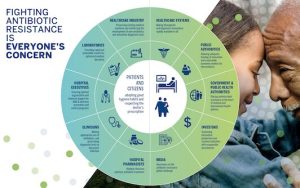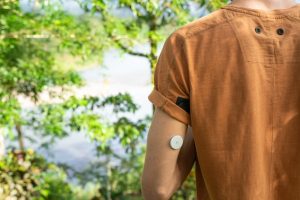Howard Hiatt, 98, Dies; Steered Public Health Toward Greater Accountability

Howard H. Hiatt, a physician, scientist and academic who reshaped the field of public health, steering it away from the narrow study of infectious diseases toward big-picture issues of fiscal and societal accountability in medicine, died on Saturday at his home in Cambridge, Mass. He was 98.
His son Jonathan Hiatt said the cause was pulmonary hypertension.
Harvard Public Health, a magazine published by the Harvard School of Public Health, where Dr. Hiatt was dean for 12 years, wrote in 2013 that Dr. Hiatt “made public health the conscience of medicine.”
Early in his seven-decade career, Dr. Hiatt worked in Paris with future Nobel Prize winners on the discovery of messenger RNA, a key element of cellular biology. He later visited the White House to urge President Ronald Reagan to end the nuclear arms buildup of the era, which Dr. Hiatt called “the final epidemic.”
A Harvard-trained physician who held leadership posts at some of the country’s most prestigious hospitals, Dr. Hiatt was an outspoken critic of the inequities in American health care. He accused American medicine of having a bias toward expensive, high-tech treatments while excluding millions of people from basic care.
In a 1987 book, “America’s Health in the Balance: Choice or Chance?,” he argued for government-run universal health insurance, modeled on aspects of the systems in Britain, Canada and China. “I am particularly anxious to reach those who are so callous as to accept the prospect of two-class medicine in America,” he told The Toronto Star.
At the Harvard School of Public Health (now the Harvard T.H. Chan School of Public Health), where Dr. Hiatt was dean from 1972 to 1984, he brought experts together across disciplines, including biostatistics and health management, to focus on the economic, political and social causes of poor health, not just the biological factors.
“He transformed education at the Harvard School of Public Health and the very definition of what the field of public health meant,” Dr. Harvey V. Fineberg, a colleague of Dr. Hiatt’s who in 2002 became president of the Institute of Medicine (now the National Academy of Medicine), said in an interview.
Looking beyond U.S. shores, Dr. Hiatt was later a founder of the Division of Global Health Equity at Brigham and Women’s Hospital in Boston, an unusual commitment by a teaching hospital to extend its resources to the care of the sick and the poor abroad.
The program was a launchpad for Partners in Health, an acclaimed nonprofit that provides health care to poor communities in Haiti, Africa and elsewhere, which was founded in 1987. The organization’s founders included two Harvard medical students, Paul Farmer and Jim Yong Kim, who regarded Dr. Hiatt as a father figure.
“He took it upon himself to mentor literally hundreds of young people who came through Harvard Medical School and Brigham and Women’s Hospital who wanted to make a difference in the world,’’ Dr. Kim said in an interview.
When Dr. Kim and Dr. Farmer discovered a drug-resistant outbreak of tuberculosis in Peru in 1995, they ran up a bill of $100,000 at the Brigham hospital pharmacy for special medicines. Soon the hospital president was on the phone with Dr. Hiatt complaining about the debt. Dr. Hiatt found a donor to cover the costs, and he later helped Partners in Health secure a $45 million grant from the Gates Foundation.
Dr. Farmer, the subject of a 2003 book by Tracy Kidder, “Mountains Beyond Mountains: The Quest of Dr. Paul Farmer, a Man Who Would Cure the World,” died in 2022. Dr. Kim went on to become president of Dartmouth College and the World Bank.
When Dr. Kim learned in 2011 that Dr. Hiatt hadn’t actually graduated from Harvard College — he had skipped ahead into medical school — he wrote a “diploma” on a napkin from the Hanover Inn awarding Dr. Hiatt a Dartmouth B.A. Dr. Hiatt framed it and hung it in his home.
Howard Haym Hiatt was born on July 22, 1925, in Patchogue, N.Y., on Long Island, to Alexander and Dorothy (Askinas) Hiatt. His father had immigrated from Lithuania by himself at 15. The family, its name changed from Chaitowicz to Hiatt, moved to Worcester, Mass., where Alexander Hiatt ran a small shoe company.
Howard was his high school valedictorian, but he was initially denied admission to Harvard; there was, he recalled later in life, a quota on the number of Jews that could be accepted at the time. After his high school principal protested to the dean of admissions, he was allowed to enroll in 1944. He entered Harvard Medical School two years later.
While there, he met Doris Bieringer, a student at Wellesley College; the couple married in 1948, the year Dr. Hiatt received his M.D. Mrs. Hiatt studied library science and was a founder of a magazine that reviewed books for school libraries. She died in 2007.
In the mid-1950s, Dr. Hiatt was a researcher at the National Institutes of Health. That job led to a one-year lab position in 1960 at the Pasteur Institute in Paris, then a center of the exciting new field of molecular biology.
In Paris, he worked under Jacques Monod and François Jacob, the future Nobel Prize winners who first named and described messenger RNA, a molecule that transfers genetic codes to make proteins. It was messenger RNA that was the foundation of the first Covid-19 vaccines approved for use in the U.S., 60 years later.
Back in Boston, Dr. Hiatt in 1963 became both a professor of medicine at Harvard Medical School and the chief physician at Beth Israel Deaconess Medical Center. His research focused on applying molecular biology to medical problems, especially cancer. He was among the first to demonstrate messenger RNA in the cells of mammals.
As he elevated research and clinical standards at the hospital, it became a magnet for medical school graduates seeking residencies. Medical schools tried to recruit Dr. Hiatt to become their dean. He turned down Columbia and Yale before accepting the leadership of the Harvard School of Public Health.
“Historically, the school has been very strong in tropical medicine, sanitary engineering and other specialties that in recent years have seemed to have very little relevance to the public health issues confronting this country,” The Boston Globe wrote when Dr. Hiatt was appointed in 1972.
But the rapid changes he introduced made him enemies, and in 1978 a group of tenured professors signed a petition calling for his ouster, complaining of his “administrative ineptitude.”
Derek Bok, Harvard’s president, who had recruited Dr. Hiatt, rejected the attempt to remove him.
In December 1981, Dr. Hiatt joined a delegation sent by Pope John Paul II to explain to President Reagan the medical consequences of a nuclear exchange. “The president was not very comfortable with our visit,” Dr. Hiatt recalled in 2006 for Web of Stories, an archive of oral histories by scientists and others.
Besides his son Jonathan, a labor lawyer, Dr. Hiatt is survived by a daughter, Deborah Hiatt, an artist; a brother, Arnold Hiatt; eight grandchildren; four great-grandchildren; and his longtime companion, Penny Janeway. His son Fred Hiatt, the longtime editorial page editor of The Washington Post, died in 2021.
In 2004, Dr. Hiatt and his wife established a residency at Brigham and Women’s Hospital that trains doctors in internal medicine and global public health. Many of the 70 or so physicians who have since gone through the program went on to work in Haiti, Lesotho and other impoverished countries where Partners in Health operates.
Dr. Hiatt visited many of the international clinics, which provided inspiration and purpose to him in his later years, Jonathan Hiatt said.
“That basically added 15 years to my dad’s career,” he added.








